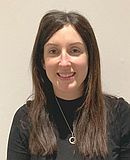Introduction to 11 Plus English and Literacy
The English examination equates to around Level 5 of the National Curriculum. Every school’s examination will differ slightly, but all will focus on reading comprehension, writing and spelling. The reading comprehension normally takes place first followed by a writing activity that is usually related to the passage in the reading comprehension. The total amount of given time to complete both parts of the test can vary from 1 to 1.5 hours and students are recommended to split the time in equal amounts in order to complete both the reading comprehension and writing sections.
What subjects will be covered in the examination?
Reading comprehension:
Within this section of the examination, your child will be asked to read a passage from a text, which can be in the form of a fiction, non-fiction piece or a poem. Your child will then be required to answer a variety of questions that will assess their knowledge and understanding of the text. Each question is worth a certain number of marks and this is usually made clear next to each question. The higher the value of the mark, the more complex the question. The questions will vary in order to assess for ability in a range of skills such as:
The ability to:
- Use a range of strategies to read for meaning (Eg. Circle the word that has the closest meaning to ‘laboriously’?)
- Understand, describe and retrieve information (Eg. Look at the first paragraph, list 4 things about the night the fire started.)
- Deduce, infer and interpret information (Eg. In your own words, explain how the character feels when she is captured.)
- Identify and comment on the structure, organisation and presentational features of the text (Eg. Look at line 19, what is the effect of having the word 'speechless' on a line of its own?)
- Understand the author’s use of language and literary features (Eg. Explain how the author creates an atmosphere of shock and confusion. Include 2 quotes from the text.)
- Identify and comment on writer’s viewpoint and effect (Eg. Is the author sympathetic towards Grandma? How do you know?)
- Relate text to cultural, social and historical contexts and literary traditions (Eg. According to text, in what way is 'Treasure Island' still influential?)
Story writing:
Your child will spend around half of the allotted time for the English exam on the writing task. Usually, there will often be a small choice of titles to choose from, although this is not always the case. Often the titles given will be open ended and can appear very uninspiring. This is designed to allow your child to demonstrate his ability to write an interesting piece that is appropriate to the purpose, organised effectively with ideas that are clearly presented and described with deliberate choices of vocabulary or literary effects.
Unlike the Seven Plus exams, the key is to realise that it is very hard to write an essay with a 'beginning, middle and end' within the 30-40minutes given if the work is to contain the detail and description to make the work a Level 5. It is therefore more favourable for the student to write a short but well described piece of writing, rather than a complete essay with little description or detail. Focusing on a shorter piece of writing provides a great opportunity for your child to demonstrate the ability to use different techniques for effect.
How you can help improve your child's writing
A good starting point is to show your child excellent examples of writing. After all, how can your child be expected to write a brilliant piece, if he doesn't know what a brilliant piece of writing looks like? Together with your child, analyse a piece of work by identifying the key components that make that piece of writing excellent (Eg. deliberate choice of vocabulary for effect, the use of suspense, or literary techniques for effect, rhetorical questions, text organised correctly using paragraphs, the use of a wide range of punctuation marks etc).
Compile a list of these key components. The more your child is shown different pieces of quality writing, the better he will get at recognising what makes a piece of writing good. Every time you see a key component before used, add it to your list.
Now it's your child's turn to write. Let's say the title of the task is 'The scariest thing that ever happened to me' and your child has decided on a chase scene where the main character is running away from a tornado.
- Plan the writing by fleshing out the ideas. What kind of events/ideas could your child focus on? One idea might be to describe the tornado. Another might be to describe the things/people around the main character as he is running. Another idea might be to have a set-back where the character has a small fall during the running. Try to have around 3-4 ideas, any more will make it hard for your child to write up within the given amount of time.
- Next to each idea, identify which feature(s) from the list would go well with it. For example: in the paragraph describing the tornado, it would be appropriate to use similes/metaphors ("The tornado spiralled and stormed along the road like a raging monster bent on destroying everything in its path").
- Now ask your child to write. He has a plan with 3-4 ideas clearly stated and which features he will use to describe them. Keep the original list of general key features next to him as well, as he may use some of them as he writes.
- Once your child has finished, ask him to review it by identifying all the features that he intended to use. Has he actually managed this? If not, ask him to edit the writing by including the missing feature.
- Praise your child for the features he has managed to use in his work. Now ask if there were any other features he could have also included. Although spellings, handwriting and general punctuation are clearly important, these should be addressed separately if the aim of writing is to improve the writing content.
A final note to make is that it is generally much easier to write a fiction piece, rather than non-fiction, as fiction writing allows the writer to demonstrate a greater use of literary effects. However, this does depend on the writing ability of your child.
What should I do next?
Once you understand the syllabus for the 11+ English exam, it is equally important to get your head around the Maths syllabus as well. You can do so by reading the next article in the series:
11+ Maths guide
If you're not sure on the fundamentals of the 11+, we recommend reading our beginners guide. This can be found here:
11+ guide
If you are still deciding which school to put your child forward for at 11+, we recommend using our school admissions guide to better understand the admissions process for a number of schools offering 11+ entry.
Owl Tutors 11+ School Admissions Guide
Although we don't provide sample papers for the ISEB pre-test, we do provide our own set of Eleven Plus exam papers. These are completely free to use, and cover the main subjects assessed at 11+. You can view these using the link below.
Owl Tutors 11+ Exam Papers
If you are looking for a tutor, we can certainly help. We offer home tutors in London, online tutors internationally, and both short- and long-term residential tuition placements. All of our tutors are qualified school teachers, with classroom teaching experience in the subjects they tutor.
11+ Tutors






